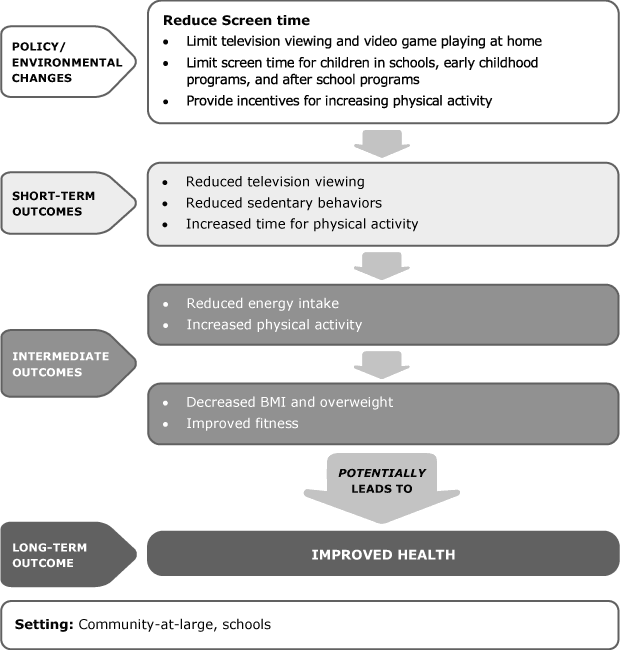no section title
Our Healthier Communities Initiatives are built on the concept that local communities can work together to give all community members healthy choices and support the pursuit of healthy lifestyles. More than 160 Ys are working in collaboration with community leaders to make changes in policies and the physical surroundings in those communities so that healthy living is within reach for individuals of all ages and backgrounds.
Reduce Screen Time
Studies show limiting screen time in various settings can increase physical activity and lead to improved overall health. Interventions aimed at reducing television viewing were effective in reducing sedentary behaviors.
Interventions aimed at reducing television viewing were effective in reducing sedentary behaviors. Most studies showed significant positive outcomes associated with reduced television viewing. These positive outcomes included fewer meals eaten in front of the television, reduced energy intake, and in some cases, significant increases in physical activity and decreases in percent overweight, BMI and body fat. Implementing policies to limit screen time in various settings can be an effective strategy to increase physical activity and thus lead to improved overall health.
References
- Epstein, L.H., Paluch, R.A., Gordy, C.C., & Dorn, J. (2000). Decreasing sedentary behaviors in treating pediatric obesity. Archives of Pediatric and Adolescent Medicine, 154(3), 220–226.
- Epstein, L.H., Roemmich, J.N., Robinson, J.L., Paluch, R.A., Winiewicz, D.D., Fuerch, J.H., & Robinson, T.N. (2008). A randomized trial of the effects of reducing television viewing and computer use on body mass index in young children. Archives of Pediatric and Adolescent Medicine, 162(3), 239–245.
- Gortmaker, S.L., Peterson, K., Wiecha, J., Sobol, A.M., Dixit, S., Fox M.K., & Laird, N. (1999). Reducing obesity via a school-based interdisciplinary intervention among youth. Archives of Pediatric and Adolescent Medicine, 153(4), 409–418.
- Otten, J., Jones, K., Littenberg, B., & Harvey-Berino, J. (2009). Effects of television viewing reduction on energy intake and expenditure in overweight and obese adults. Archives of Internal Medicine, 169(22), 2109–2115.
- Robinson, T.N. (1999). Reducing children's television viewing to prevent obesity. JAMA, 282(16), 1561–1567.
- The Switch Program, Cedar Rapids, Iowa. (n.d.). From Play Matters: A study of best practices to inform local policy and process in support of children's play. Washington, DC. http://kaboom.org/docs/documents/pdf/playmatters/Play_Matters_Extended_Case_Studies.pdf. Retrieved November 15, 2010.

More Healthy Living Strategies
-
Active Living Strategy #10
Healthy Living Strategies -
Active Living Strategy #1
Healthy Living Strategies -
Active Living Strategy #2
Healthy Living Strategies